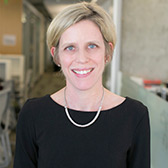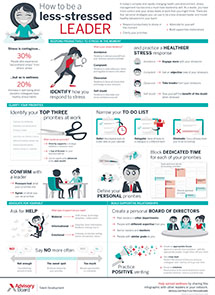Auto logout in seconds.
Continue LogoutModern Healthcare this week released its 2019 list of the "Top 25 Women in Healthcare," which honors female executives from different sectors of the health care industry.
About the list
To create the list, Modern Healthcare accepted hundreds of nominations for women who are in health care leadership roles across the country. To be eligible for the honor, the women must:
- Work at a hospital, health insurer, health care research organization, physician organization, home health organization, government health agency, or health care vendor or supplier organization;
- Serve in a role that is senior VP or higher;
- Demonstrate that they have helped their organization "exceed" its financial, clinical, and strategic goals;
- Promote gender equity in the C-suite; and
- Act as a mentor to the next generation of leaders.
This year, Modern Healthcare also published a list of "10 Women Leaders to Watch" for 2019, which included executives from health insurance companies, hospitals, and physician organizations. The list has the same eligibility requirements as the "Top 25 Women in Healthcare" list, but allows Modern Healthcare to "honor additional high-achievers in the field at all stages of their careers" at the executive-level or managerial positions, the publication said.
According to Modern Healthcare, a panel of judges and "top editors" at the publication selected who to include on the lists.
Who made the list
The women who made Modern Healthcare's "Top 25 Women in Healthcare" list for 2019—in alphabetical order by last name—are:
- Nancy Howell Agee, president and CEO of Carilion Clinic;
- Madeline Bell, president and CEO of Children's Hospital of Philadelphia;
- Mary Boosalis, president and CEO of Premier Health;
- Debra Canales, executive VP and chief administrative officer of Providence St. Joseph Health;
- Mandy Cohen, secretary of the North Carolina Department of Health and Human Services;
- Tina Freese Decker, president and CEO of Spectrum Health;
- Cynthia Hundorfean, president and CEO of Allegheny Health Network;
- Laura Kaiser, president and CEO of SSM Health;
- Anne Klibanski, chief academic officer for Partners HealthCare;
- Kathy Lancaster, executive VP and CFO of Kaiser Foundation Health Plan and Hospitals;
- Karen Lynch, executive VP of CVS Health;
- Patricia Maryland, president and CEO of Ascension Healthcare;
- Barbara McAneny, president of the American Medical Association;
- Redonda Miller, president of Johns Hopkins Hospital;
- Janice Nevin, president and CEO of Christiana Care Health System;
- Amy Perry, CEO of the hospital division of Atlantic Health System;
- Candice Saunders, president and CEO of WellStar Health System;
- Ninfa Saunders, president and CEO of Navicent Health;
- Joanne Smith, president and CEO of Shirley Ryan AbilityLab;
- Johnese Spisso, president of UCLA Health;
- Paula Steiner, president and CEO of Health Care Service Corp.;
- Pamela Sutton-Wallace, CEO of University of Virginia Medical Center;
- Susan Sweeney, president and head of the U.S. commercial division at Bristol-Myers Squibb;
- Seema Verma, administrator of CMS; and
- Andrea Walsh, president and CEO of HealthPartners.
The women who made Modern Healthcare's "Women to Watch" list for 2019—in alphabetical order by last name—are:
- Amber Cambron, president and CEO of BlueCare Tennessee;
- Laura Forese, executive VP and COO at New York-Presbyterian;
- Rebekah Gee, secretary of Louisiana's Department of Health;
- Patrice Harris, president-elect of the American Medical Association;
- Sally Hurt-Deitch, CNO of Tenet Healthcare;
- Lynn Krutak, CFO of Ballad Health;
- Rebecca Madsen, chief consumer officer and UnitedHealthcare;
- Rhonda Medows, president of population health management at Providence St. Joseph Health;
- Mikelle Moore, senior VP of community health at Intermountain Healthcare; and
- Heather Wall, chief commercial officer at Civica Rx.
Daily Briefing is published by Advisory Board, a division of Optum, which is a wholly owned subsidiary of UnitedHealth Group. UnitedHealth Group separately owns UnitedHealthcare ("Top 25 Women Leaders" list, Modern Healthcare, accessed 2/19; "Top 25 Women Leaders" methodology, Modern Healthcare, accessed 2/19; Furst Group, 2/18).
Advisory Board's take: Why we need more female leaders (and how we actually made progress)

Allison Cuff Shimooka, Executive Director, Research
The data are pretty clear that having more diversity in leadership—both in ethnicity and gender—helps organizations succeed. One study, which looked at 21,980 firms from 91 countries, found that a firm with at least 30% female leaders could expect to be 15% more profitable than a similar firm with no women in leadership. A study of the 400 largest companies in California found that the 25 firms with the highest percentage of female leaders and board members had at least a 74% higher median return on assets and equity.
“Despite women making up 80% of the health care workforce, they comprise just 3% of CEOs”
Yet, the state of female leadership in the country—and particularly in the health care industry—continues to be bleak. Despite women making up 80% of the health care workforce, they comprise just 3% of CEOs, 6% of department chairs, 9% of division chiefs, and 3% of chief medical officers.
We at the Advisory Board have faced the same problem. Seven years ago, our board looked at the number of female leaders in the organization and the results were discouraging. They noticed that many women were leaving the organization right before they would enter senior leadership— and the result was a distinct lack of senior women leaders. So the board told CEO Robert Musselwhite that he needed to address the issue.
He responded by implementing a number of strategies, one of which was creating a "Women in Leadership" program which selected 20 promising female leaders at the organization (myself included), and provided us leadership coaching, mentorship, and 360-degree leadership assessments. It was highly impactful for me. Not only did I get to know senior leaders at the organization, it gave me peers to collaborate with and a strong network I could rely on.
“Today, a woman leads our entire research operation. ”
And it made a difference. Today, a woman leads our entire research operation. We have many female executive directors, many women leading our research teams, and many more women—who weren't in the program but were inspired by the success of those in it—rising up the ranks.
That doesn't mean that we've become perfect. It's clear that we still have work to do. Yet, personally, having been involved in the program showed me that the firm truly believed in the issue and was willing to invest in it—it wasn't just paying lip service.
To learn more about how your organization can address this issue, read my colleague Veena Lanka's post, "How the health care leadership gender imbalance hurts your organization—and 4 ways to make a change." Then be sure to download our report on How to Ensure Seamless Leadership Transitions to learn more about how to create a diverse pipeline to leadership.
Read the Post Download the Report
Join our popular webconference series: 'Management Master Class'
Back by popular demand, our three-part webconference series will help you hone in on key leadership skills including simple steps to retain more staff, coach more effectively, and manage your limited time more effectively all in 30 minutes a week.
Don't miss out on the latest Advisory Board insights
Create your free account to access 1 resource, including the latest research and webinars.
Want access without creating an account?
You have 1 free members-only resource remaining this month.
1 free members-only resources remaining
1 free members-only resources remaining
You've reached your limit of free insights
Become a member to access all of Advisory Board's resources, events, and experts
Never miss out on the latest innovative health care content tailored to you.
Benefits include:
You've reached your limit of free insights
Become a member to access all of Advisory Board's resources, events, and experts
Never miss out on the latest innovative health care content tailored to you.
Benefits include:
This content is available through your Curated Research partnership with Advisory Board. Click on ‘view this resource’ to read the full piece
Email ask@advisory.com to learn more
Click on ‘Become a Member’ to learn about the benefits of a Full-Access partnership with Advisory Board
Never miss out on the latest innovative health care content tailored to you.
Benefits Include:
This is for members only. Learn more.
Click on ‘Become a Member’ to learn about the benefits of a Full-Access partnership with Advisory Board
Never miss out on the latest innovative health care content tailored to you.

